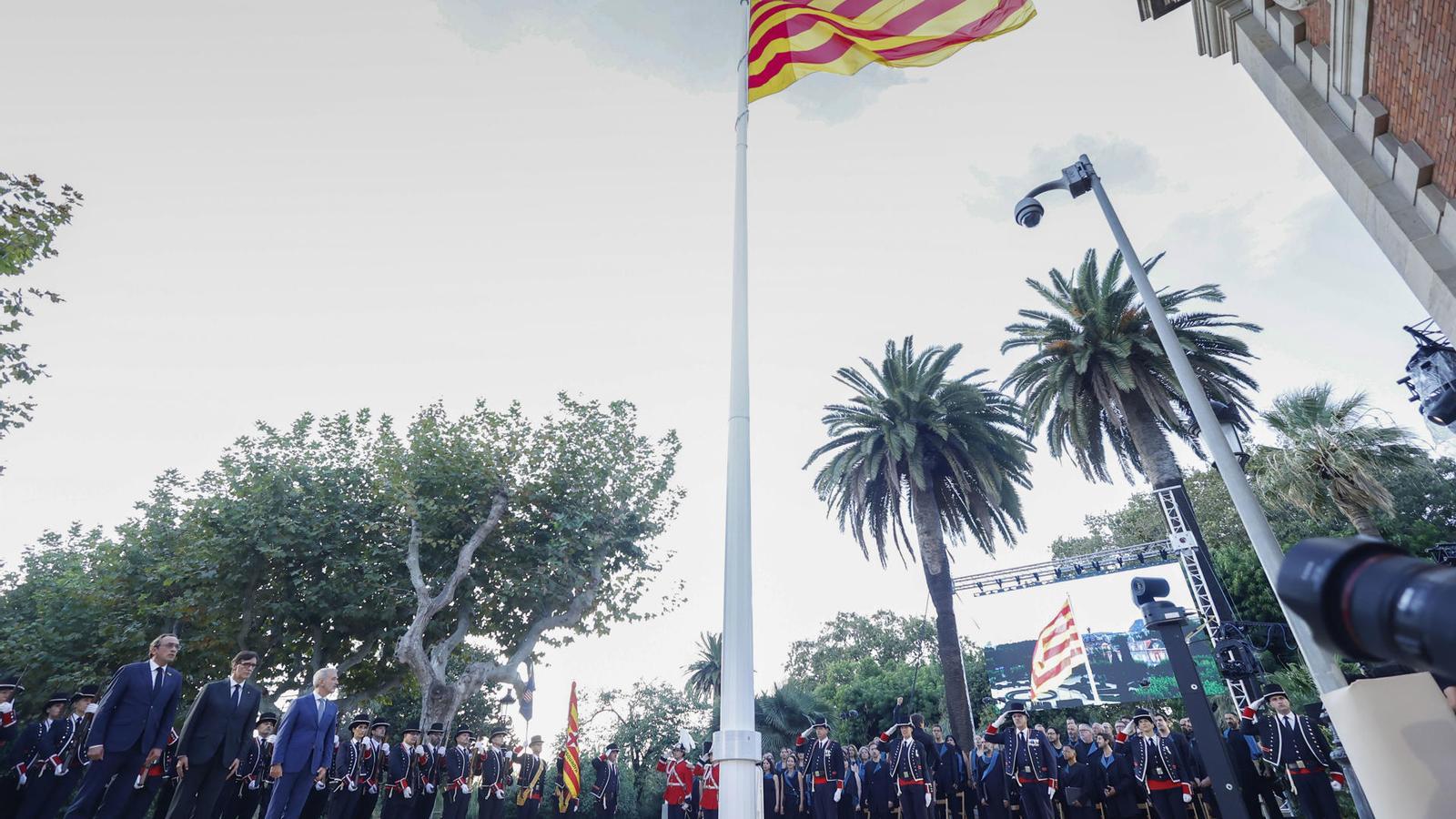From Pujol to Illa and from Maragall to Rull: a 54-meter flag in the Parliament to reconcile Catalanism.
Leaders of the PSC, Esquerra, Comuns, and Junts show good harmony at the kickoff of the Diada in the Parliament, with the absence of the CUP.


BarcelonaThe meeting between the President of the Generalitat, Salvador Illa, and the former President of the Generalitat in exile, Carles Puigdemont, has marked a before and after in the relationship between two worlds, that of constitutionalism and that of independence, which have been at odds (or at least, quite separate) since 2017. Whether or not the meeting between the two leaders will bring about a change in relations between the Socialists and the regional council members remains to be seen, but what it does seem to herald is a reconciliation between the two spaces—language, culture, and Catalan national identity—within political Catalanism. This image of unity was witnessed this Wednesday, the eve of Catalonia's National Day, at the solemn flag-raising ceremony in the Parliament. It was also witnessed at the subsequent reception, with more than 400 guests, a tradition that the Catalan parliament is bringing back this year and that was celebrated between 1980 and 2008.
The flag that has been raised in the Parliament of Catalonia is not just any flag: It has no less than 54 square meters –six by nine–, on a 25-meter pole. It cost 93,000 euros and comes with an ingenious mechanism that prevents the wind from enveloping it, as was evident when the flag reached the top of the pole, while the Orfeó Català performed. The song of the flagThe event was presided over by Salvador Illa; the Speaker of the Parliament, Josep Rull; and the Mayor of Barcelona, Jaume Collboni, all three with equal prominence. Also present were former presidents Pere Aragonès, Artur Mas, José Montilla, and Jordi Pujol, who, seated in a chair, remained in a lively conversation with the attendees at the end of the event. He even had a few kind words for some journalists in the back row. The good rapport that Illa and Rull usually display in public—both presidents praise each other's sense of institutionality—was extended to other political leaders from Junts, Esquerra, Comuns, and the PSC. The CUP, on the other hand, opted to establish a bloc that, in the Parliament during the last term, already staged for the first time unity in the defense of Catalan in schools, compared to the 25% that speak Spanish. There was also no one from the PP, Vox and Aliança.
The spirit of Maragall
This year's solemn raising of the Diada flag kicks off the institutional events of September 11th in the Parliament, and was an initiative of Rull. If Salvador Illa has embraced Pujol's legacy, the Speaker of the Parliament has raised the stakes and sought to approach Pasqual Maragall's party. The idea of opening the Parliament to the people came, precisely, from the first PSC president of the Generalitat, who in 2004 had already wanted to give a solemn character to the flag-raising ceremony. The ceremony, with the participation of the Mossos d'Esquadra honorary guerrilla group, concluded with a performance ofThe song of the birds by Gemma Humet, The Reapers and a gloss on the history of the flag: a flag "born from a shield and a lineage"—the first graphic record of it dates back to 1150, on a seal of Ramón Berenguer IV—that descended into the streets and squares and became the symbol "of a people." From now on, it will fly permanently in the Parliament.
